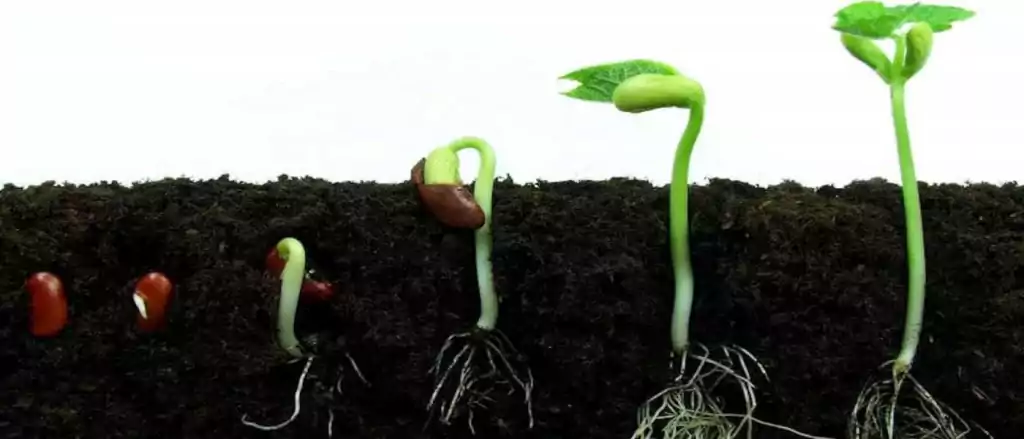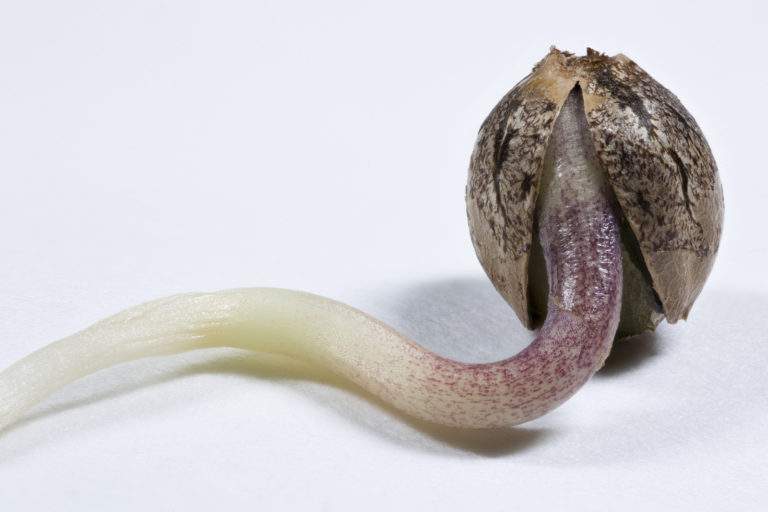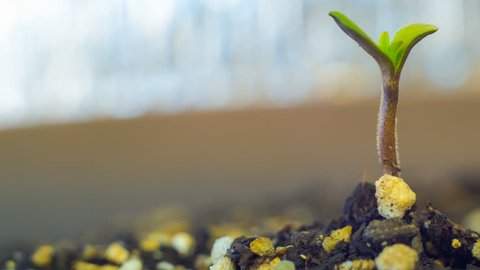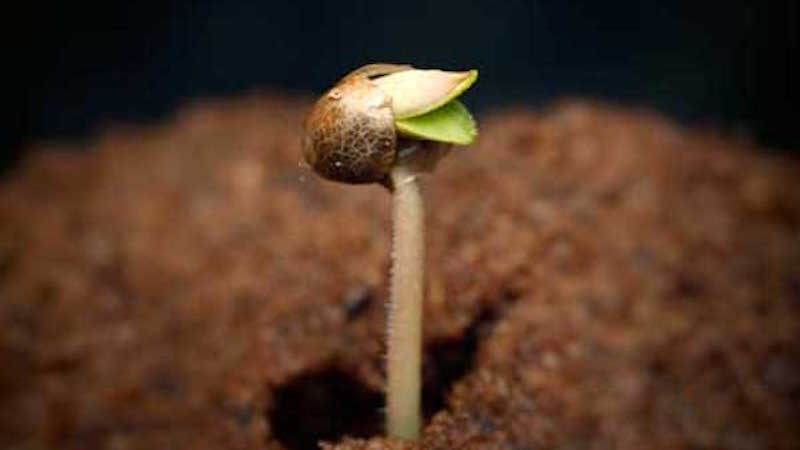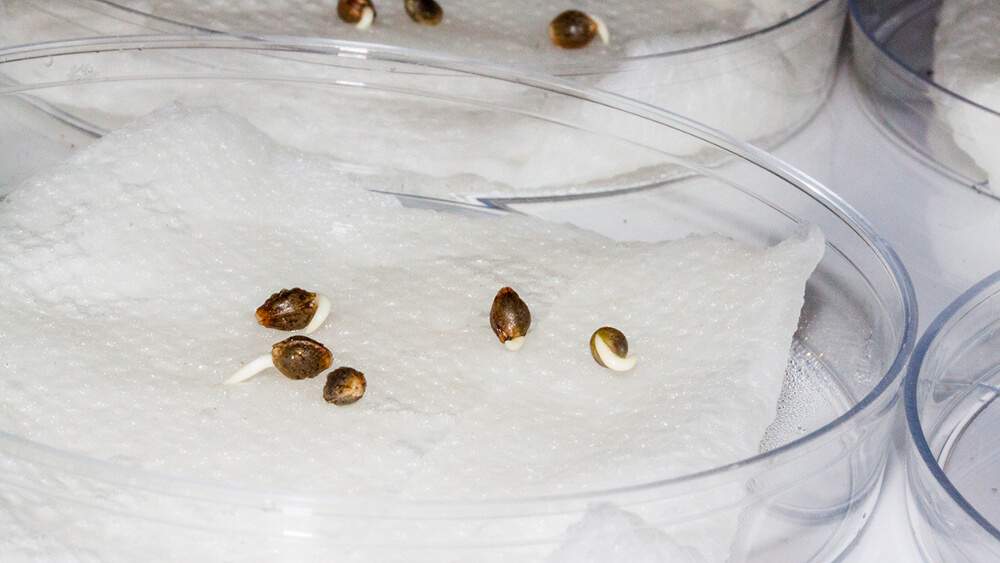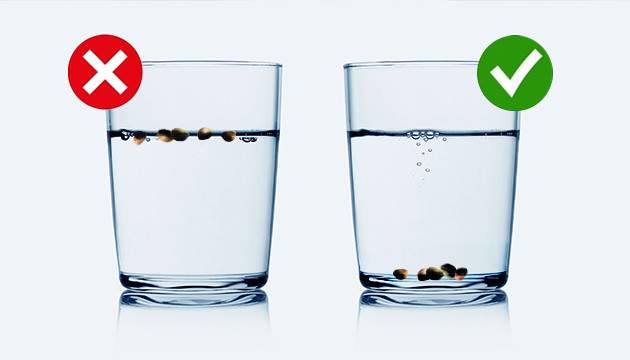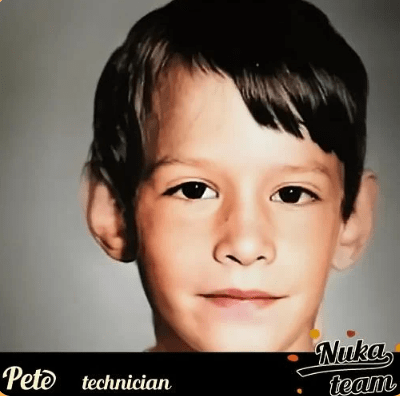English
Germinating marijuana seeds is the first step on the road to cannabis plants. It is the process by which the life in the seed is stimulated and emerges as a shoot.
3 basic stimuli that trigger the germination process
The first is water; the seed undergoes a process called “sipping”, that is, the seed absorbs water from its surroundings, when eventually the seed shell splits and the embryo expands within it.
The second factor that is necessary to trigger germination is air. This ensures that the embryo has everything it needs for photosynthesis and sweating to take place.
The third and final factor for the hemp seed to germinate is the right temperature. The embryo inside the seed has its own small supply of nutrients to start growing. Therefore, only the three factors mentioned above need to be met for growth to start.
Once a marijuana seed has taken its first steps on the road of life, it develops a small root that bursts through a crack in the seed coat.
As growth continues, two uterine petals known as cotyledons will also appear. These push off the rest of the seed coat.
Do not attempt to remove the peel yourself, you are likely to do more harm than good.
As soon as the leaves appear, it is important to give the seed as much light as possible to allow it to start the process of photosynthesis, which produces the substances needed for further growth.
There are several methods for germinating cannabis seeds, some of which are preferable to others.
Beginners are usually advised to start the germination process with only five seeds out of ten and leave the next five to germinate a week later. If the first seeds have errors due to poor germination techniques, you will still have seeds that can germinate without errors. If you already have sufficient experience from previous successful trials, there is no reason why you should not let all the seeds germinate at once.
Generally speaking, cannabis seeds germinate best at temperatures between 21-27°C and take about 2-7 days to germinate.
More advice:
If you buy low quality seeds (immature) you are unlikely to have a high number of successfully germinated seeds – no matter how experienced you are. One of the signs of a bad seed can be a very light colour, but this can also occur quite naturally in some seed types – so it is advisable to find out as much information as possible about the species first and then contact the seller if you get white seeds without expecting them.
Other causes of germination failure can be poor pH, drying of the seed, poor depth, oversaturation, physical damage or poor soil. Also be careful where you store the seeds for germination.
If you leave sprouting seeds in the soil, resist the temptation to uncover them to see how they are doing. No matter how long they take to germinate. It would do more harm than good – it would damage the young shoots.
Some types of cannabis can grow from very thin shoots indeed. If this is the case, support the shoot with a stick until it becomes thicker. Never use a stick found outdoors, as this could introduce unwanted substances such as pesticides to the seed.
If you want fresh cannabis seeds, check out our marijuana varieties in our seed bank Nukaseeds.
Seed germination in soil
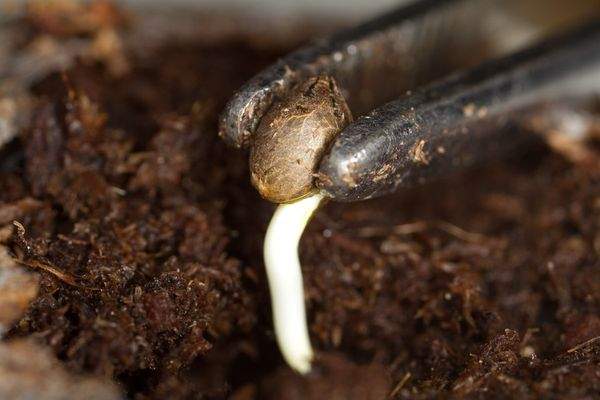
This is one of the most popular methods, just as Mother Nature intended. If you have good fresh seeds, you shouldn’t have the slightest problem.
Place the seeds in their places in moist soil. If you can, use soil directly intended for germination. It has just the right balance of nutrients for your seed to thrive. Ordinary soil may contain a mixture of too many nutrients and impurities that the seed does not require – you can damage the seed by over-saturating it.
Place the seed 3-5 mm below the soil and cover it carefully. You only need to keep the soil moist, so watch out for overwatering. A clean plastic cover (e.g. a cut off pet bottle) can be placed over the soil to ensure constant moisture. Place the pots in the heat and let nature do its work.
After a few days you will see the stems with their first leaves, at this point you can remove the plastic cover and move the pot under a grow light or a place with plenty of daylight.
Germination of seeds in a napkin
This method involves placing the seeds in either a damp paper napkin, thin cloth or cotton wool (on a tray). Cover the seeds with more damp cotton wool or paper towel. It’s a good idea to cover the seeds with the tray from the top as well, using the cover to keep the moisture constant. Move the seeds to a warm place and let them work.
If you use this method, it is extremely important to make sure that the seeds never dry out – if they do, they will die or become damaged and the whole germination process will fail. Check the seeds every day until the first root appears. Once this happens, move them very carefully to the growing medium.
The best way to do this is probably with a pair of tweezers. Definitely make sure you don’t touch the root at all. It is very fragile and touching it can damage it and kill the whole seed.
This method may give you an average germination success rate, but remember that the seeds are exposed to different influences all the time and may be damaged. It is necessary to be very careful.
Sprouting in water
This is not a very popular method, but it has its uses, especially for older seeds. In addition, you will find out the quality of the seeds, because if the seeds sink to the bottom, this indicates that they are of good quality and the right age – so they are absolutely perfect for planting. On the other hand, seeds that are left floating on the surface are definitely of poor quality, too old and extremely unsuitable for planting and growing cannabis plants.
If you have stored the seeds for a long time, the skin has hardened. In this case, using other methods is a challenge because the seed will need to absorb more water. With this method, this is not such a concern.
This method involves placing the seeds in a jar of clean water. This allows the seed to really soak in, softening the skin and absorbing enough water. However, it must not absorb water for more than 24 hours. If the seed is left in the water any longer, you run the risk of not getting enough oxygen and the seed dying. Once it has been soaked up, place it in the soil and proceed as described above.
Published by Peca Sarm
07/03/2022choose and buy cannabis seeds from our offer
our pleasure

